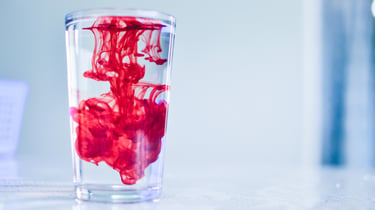eStoreRx™
Online Supplement Dispensary
eStoreRx™ is an easy direct-to-patient ordering & fulfilment program for lifelong wellness.
For over 40 years, Biotics Research Corporation has revolutionized the nutritional supplement industry by utilizing “The Best of Science and Nature”. Combining nature’s principles with scientific ingenuity, our products magnify the nutritional
eStoreRx™ is an easy direct-to-patient ordering & fulfilment program for lifelong wellness.
Biotics Research is proud to expand our commitment to education with the Wellness Unfiltered Pro Podcast. Each episode delves into key health topics and the clinical applications of our premier products. Through candid, insightful conversations, our team offers practical guidance to keep you informed and empowered as a healthcare professional.
February 26 2026
A study published recently in the Journal of Cachexia, Sarcopenia and Muscle raises concerns about a possible side-effect of long-term statin drug use...
 Eating whole foods is beneficial because whole foods are replete with key nutrients. However, eating whole foods also means avoiding processed foods, which is an important dietary strategy as well. Avoiding processed foods means eliminating additives and preservatives that might seem insignificant, but a recent study has shown that long-term consumption of red food dye, a common food additive, can be a potential trigger of inflammatory bowel diseases (IBDs), Crohn’s disease and ulcerative colitis. Diet plays a pivotal role in the development of IBD and IBD incidence has seen a rapid rise in developing countries with western diets that are high in food additives.
Eating whole foods is beneficial because whole foods are replete with key nutrients. However, eating whole foods also means avoiding processed foods, which is an important dietary strategy as well. Avoiding processed foods means eliminating additives and preservatives that might seem insignificant, but a recent study has shown that long-term consumption of red food dye, a common food additive, can be a potential trigger of inflammatory bowel diseases (IBDs), Crohn’s disease and ulcerative colitis. Diet plays a pivotal role in the development of IBD and IBD incidence has seen a rapid rise in developing countries with western diets that are high in food additives.
Study author Wiliul Khan of McMaster University said the dye is a common ingredient in candies, soft drinks, dairy products and certain cereals. Dyes are generally used to make foods more appealing to children, be it the color or the texture, and the use of synthetic colorants in food products has increased over the past 50 years. These compounds generate free aromatic amines in the gut lumen where they can be considered mutagenic and carcinogenic. The dye directly disrupts gut barrier function, increases the production of serotonin, and alters gut microbiota composition, all of which leads to an increased susceptibility to colitis.
Serotonin or 5-hydroxytryptamine (5-HT) regulates GI physiological function in response to environmental stimuli in the gut. 5-HT content was found to be elevated in IBD patients, and mice with lower 5-HT content in the gut showed reduced colitis severity.
In this study, C57BL/6 mice were either fed a normal chow diet or one exposed to red dye for 12 weeks. Red dye levels were calculated based on the acceptable daily intake (ADI) in humans (7 mg/kg per body weight). Mice exposed to red dye showed reduced body weight, increased disease activity, reduction in colonic lengths and increased colonic weights. In addition, colonic interleukin (IL)--1β, IL-6, and tumor necrosis factor (TNF)-α, were higher in the mice exposed to the red dye, while the genes that regulate intestinal epithelial barrier function (zonula occludin-1 [ZO-1; Tjp1], and occludin [Ocln]), were reduced compared to their counterparts.
"The literature suggests that the consumption of Allura red dye also affects certain allergies, immune disorders and behavioral problems in children, such as attention deficit hyperactivity disorder," says Khan. “While the exact causes of IBDs are not fully understood, dysregulated immune responses, genetic factors, gut microbiota imbalances, and environmental factors are triggers.”
Submit this form and you'll receive our latest news and updates.
A growing body of evidence points to the intestinal microbiome as an important factor in both the initiation and metasta...
Learn moreIn a study recently published in Nature Microbiology, a longitudinal multi-omics analysis was reported for women with a ...
Learn more
*These statements have not been evaluated by the Food and Drug Administration. This product has not intended to diagnose, treat, cure, or prevent any disease.
© 2025 Biotics Research Corporation - All Rights Reserved
Submit your comment